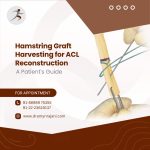Shoulder tendonitis is a prevalent condition that affects many individuals, causing discomfort and limitations in daily activities. Understanding its symptoms, treatments, and preventive measures is crucial for managing this condition effectively.
Introduction to Shoulder Tendonitis
Shoulder tendonitis, also known as rotator cuff tendonitis, is a common orthopedic issue characterized by inflammation or irritation of the tendons in the shoulder joint. This condition often results from repetitive overhead motions or sudden excessive strain on the shoulder, leading to micro-tears in the tendons.
Understanding Shoulder Anatomy and Tendonitis
- What Is Shoulder Tendonitis?
Shoulder tendonitis primarily affects the tendons in the rotator cuff, a group of muscles and tendons that stabilize the shoulder joint. These tendons facilitate various arm movements but can undergo stress, leading to inflammation and pain.
- Causes of Shoulder Tendonitis
The causes of shoulder tendonitis can vary from overuse during sports activities to poor posture or age-related degeneration. Repetitive actions like throwing, lifting, or reaching overhead can contribute to the development of tendonitis.
Common Symptoms of Shoulder Tendonitis
Individuals with shoulder tendonitis may experience persistent pain, especially when lifting or reaching. This discomfort is often accompanied by a limited range of motion, making everyday tasks challenging.
- Shoulder Pain
Persistent pain in the shoulder, typically felt as a dull ache or a sharp, stabbing sensation, is a hallmark symptom of tendonitis. The pain may intensify during specific movements involving the affected shoulder, such as lifting, reaching, or overhead motions.
- Limited Range of Motion
Individuals with shoulder tendonitis often experience difficulty in moving the affected shoulder freely. This limitation in the range of motion can hinder routine activities, such as combing hair, reaching for objects, or performing daily chores.
- Swelling and Tenderness
Inflammation of the tendons in the shoulder joint can lead to localized swelling and tenderness. The affected area may feel tender to the touch, and swelling might be noticeable, particularly around the injured tendon.
- Weakness in the Shoulder
Shoulder tendonitis may cause weakness in the affected shoulder, making it challenging to perform tasks that require strength or endurance. Reduced muscle strength may be noticed, particularly when lifting objects or performing repetitive motions.
- Crepitus or Clicking Sensation
Some individuals with shoulder tendonitis may experience a sensation of crepitus, characterized by a crackling or clicking noise within the shoulder joint when moving the arm. This sensation can accompany other symptoms of tendonitis.
- Discomfort at Rest
In severe cases, individuals may experience discomfort or pain even when the shoulder is at rest, disturbing sleep patterns and affecting overall comfort during daily activities.
Recognizing these symptoms is crucial for early identification and prompt intervention to prevent the exacerbation of shoulder tendonitis.
Shoulder Tendonitis Treatments
Managing shoulder tendonitis involves a combination of treatments aimed at reducing pain, inflammation, and improving shoulder function. The treatment approach may include:
- Rest and Activity Modification
Resting the affected shoulder and avoiding activities that exacerbate pain or strain on the tendons is crucial. Modifying daily tasks to minimize overhead movements can aid in the healing process.
- Ice and Heat Therapy
Applying ice packs to the shoulder for 15-20 minutes several times a day helps reduce inflammation and alleviate pain. Additionally, alternating with heat therapy, such as warm compresses, can help relax the muscles and promote blood flow to the affected area.
- Medications
Over-the-counter nonsteroidal anti-inflammatory drugs (NSAIDs) like ibuprofen or naproxen can help alleviate pain and reduce inflammation. However, long-term use should be monitored and discussed with a healthcare professional.
- Physical Therapy
Engaging in a structured physical therapy program is beneficial for shoulder tendonitis. Physical therapists design exercises to strengthen the shoulder muscles, improve flexibility, and enhance overall shoulder function.
- Corticosteroid Injections
In some cases, healthcare providers may recommend corticosteroid injections directly into the affected shoulder joint to reduce inflammation and provide short-term relief from pain.
- Platelet-Rich Plasma (PRP) Therapy
PRP therapy involves injecting concentrated platelets from the patient's blood into the injured tendon to promote healing and reduce inflammation.
- Ultrasound or Shockwave Therapy
These therapies utilize sound waves to stimulate the healing process and reduce pain in the affected tendon.
- Surgical Intervention
In severe cases where conservative treatments fail to provide relief, surgical options like arthroscopic shoulder surgery may be considered to repair damaged tendons or remove inflamed tissue.
- Lifestyle Changes and Prevention
Incorporating ergonomic changes, maintaining proper posture, and avoiding overuse or repetitive movements can help prevent recurrence of shoulder tendonitis.
The choice of treatment depends on the severity of the condition and individual needs. Consulting a shoulder specialist in breach candy hospital Mumbai is crucial for developing a tailored treatment plan for shoulder tendonitis.
Shoulder Tendonitis Prevention
Preventing shoulder tendonitis involves adopting proactive measures and lifestyle adjustments to reduce the risk of developing this condition. Consider the following preventive strategies:
- Proper Posture and Body Mechanics
Maintaining good posture and practicing correct body mechanics while performing activities can significantly reduce strain on the shoulder muscles and tendons. Ensure proper ergonomics in the workplace and during daily tasks.
- Gradual Exercise Progression
When starting a new exercise routine or engaging in activities that involve the shoulders, it's crucial to gradually increase intensity and duration to allow the tendons to adapt and strengthen over time.
- Strengthening and Stretching Exercises
Incorporate shoulder-strengthening exercises and regular stretching routines into your fitness regimen to improve muscle strength, flexibility, and stability in the shoulder joint.
- Avoid Overuse and Repetitive Motions
Limit repetitive overhead movements, especially during sports or work-related activities. Take breaks and alternate tasks to prevent excessive strain on the shoulder muscles and tendons.
- Proper Lifting Techniques
When lifting objects, use proper lifting techniques to reduce stress on the shoulders. Bend your knees, keep the object close to your body, and avoid lifting heavy weights above shoulder level whenever possible.
- Warm-up and Cool-down
Before engaging in physical activities or exercises, perform proper warm-up exercises to prepare the muscles and tendons. Afterward, incorporate a cool-down routine to help relax the muscles and prevent stiffness.
- Avoid Prolonged Static Postures
Avoid staying in one position for extended periods, especially if it puts undue stress on the shoulders. Take regular breaks to stretch and move around to prevent stiffness and muscle strain.
- Listen to Your Body
Pay attention to any early signs of discomfort or pain in the shoulder area. Respond promptly by modifying activities, applying rest, or seeking professional advice to prevent further aggravation.
- Regular Health Check-ups
Maintaining overall good health and seeking routine check-ups can help identify and address any underlying conditions or risk factors that may predispose you to shoulder tendonitis.
Incorporating these preventive measures into your lifestyle can significantly reduce the risk of developing shoulder tendonitis and promote overall shoulder health.
Consultation with a Specialist
Consulting an orthopedic doctor or a shoulder specialist in Mumbai is vital for an accurate diagnosis and the formulation of an appropriate treatment plan tailored to the individual's specific condition and needs.
This comprehensive diagnostic approach helps healthcare professionals accurately identify shoulder tendonitis and develop an effective strategy for managing the condition.
Meet Dr. Amyn Rajani, an esteemed orthopedic shoulder surgeon in Mumbai. With expertise in shoulder treatments, he's dedicated to restoring mobility and relieving pain.
To schedule an appointment, call on Clinic Number: 91-88989 75355 / 91-22-23619137




